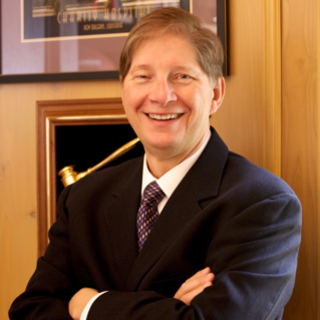 Why should anyone care about investing in health-related startups? Because potential cures for disease, and improvements to our health system, are dependent upon our engagement. I have been asked why physicians, in particular, should consider investing in early-stage health startup ventures. There is no single answer—but there are a number of compelling reasons.
Why should anyone care about investing in health-related startups? Because potential cures for disease, and improvements to our health system, are dependent upon our engagement. I have been asked why physicians, in particular, should consider investing in early-stage health startup ventures. There is no single answer—but there are a number of compelling reasons.
First, we need to understand that in 2012, Congress passed a new law that dramatically changed the manner in which early-stage investing could be done. The JOBS Act was a major step forward in that it lowered the threshold for investment, thereby allowing more modest investors to obtain equal footing with traditional angel investors.
Second, while physicians generally make a good living and live well, they are usually not wealthy enough to make the kinds of investments that angel investors have historically made (i.e., hundreds of thousands of dollars). However, in 2015, the Securities and Exchange Commission adopted rules based on the JOBS Act that allow crowdfunding. This application of crowdfunding to healthcare makes sense because it allows physicians to make modest investments in companies that hold promise. And when physicians can work in unison, they can pool resources to advance novel concepts.
Third, compared to generalist investors, physicians are more qualified to evaluate the potential merits and failings of new devices, drugs, concepts, or applications. Their training and expertise gives them a healthy skepticism toward new ideas. Physician are more likely to invest only when the health venture holds some degree of true promise. That is, there must be a good, solid, medical review of the concept—and its potential to address a problem or need in the health sector. Few are more qualified to make these kinds of assessments than physicians. Years of training in medicine and surgery make physicians the perfect choice when it comes to this type of review. Physicians’ expert review suggests that those ideas that secure funding are likely to be much better investment bets.
Fourth, (and a reason that I favor as a physician) is that this is a societal good. How so, some ask? Aside from the merits of investing in what you know, health-related ventures are better investments for society as a whole because the success of these ventures is coupled with advancement in disease management, disease prevention, health maintenance, cost management, breakthroughs in pharma and technology, etc.
Fifth, it is my firm belief that real health reform will best be accomplished via innovation. That innovation will come from entrepreneurial physicians and scientists, often in unexpected ways. The advent of real-time collaboration allows for advances in health-related fields that used to take much longer. Many of the technologies in the pipeline are not only related to drugs and devices, but also to novel techniques for drug testing, gene therapy, and the integration of artificial intelligence into the clinical setting. In the first quarter of 2018 alone, over three billion dollars were invested in health-related startup ventures. (Figure 1) The second quarter of this year added almost another three billion in healthcare investment! The trend is clear.
Figure 1
Sixth, as we read more about physician burnout, it is clear that part of the problem is a loss of self-determination. The intrusion of electronic documentation and its seemingly endless demands—as well as the ever-increasing scrutiny of varying local, state and federal agencies in healthcare,—has left physicians feeling powerless. Investing in healthcare startups is a way to revive interest in medicine beyond the day-to-day work that consumes most practitioners.
Seventh, urologists have historically been conservative in areas of business. However, over the last 40 years that has changed dramatically. The advent of large group practices, joint ventures, technology partnerships ,and consortiums have made urologists, as a group, among the leaders in healthcare investment and innovation.
Lastly, you may ask: when is the best time to begin? The answer is anytime! There is no single correct moment in any physician’s career to become involved in healthcare innovation, as either the innovator or innovator supporter. There are always excuses at every stage: early on we feel we have too much educational debt and are not making sufficient income; mid-career, there are often family life tuitions, mortgages, etc.; late in our careers, we may say we “missed the bus” and it is too late. None of this is true! In my own case, despite the loss of my clinical career due to injuries, illness, and the loss of my hometown to natural disaster (Hurricane Katrina), I have found great excitement in medicine, in general, and urology, in particular, via participation in startup ventures.
The more of us that join in promoting innovation, the greater impact we will have. Some venture companies are now focused solely on linking healthcare startups, large medical centers, and physicians. I have had the personal opportunity to work with angelMD and understand firsthand the value that this concept brings to health companies and physicians. Please do not hesitate to contact me if I can offer further guidance.
Image by alexacrib / Shutterstock
Dr. Macaluso has a long history of accomplishment in Urology. He maintained one of the most active Urological Surgery practices in the nation for more than 22 years, and served as the Managing Director and Director of Research and Grants at the Urologic Institute of New Orleans for 15 years. He taught medical students and residents for many years as an Associate Professor of Clinical Urology at Louisiana State University Medical School and Charity Hospital in New Orleans. Dr. Macaluso also held the rank of Assistant Professor of Clinical Urology at Tulane Medical School. Certified by the American Board of Urology, he currently serves on the Board of Directors of the Foundation for the Louisiana State University Health Sciences Center, and has served in numerous executive committee positions, including Chairman of the Board. Dr. Macaluso has also served as a consultant to many major pharmaceutical and healthcare corporations. He also works with healthcare startups.
Follow Dr. Macaluso on Twitter @MacalusoJoseph, or connect with him on LinkedIn.
Disclosures: Dr. Macaluso is an investor, Scientific Advisory Board member, and Chair of the Urology Advisory Board at angelMD.






